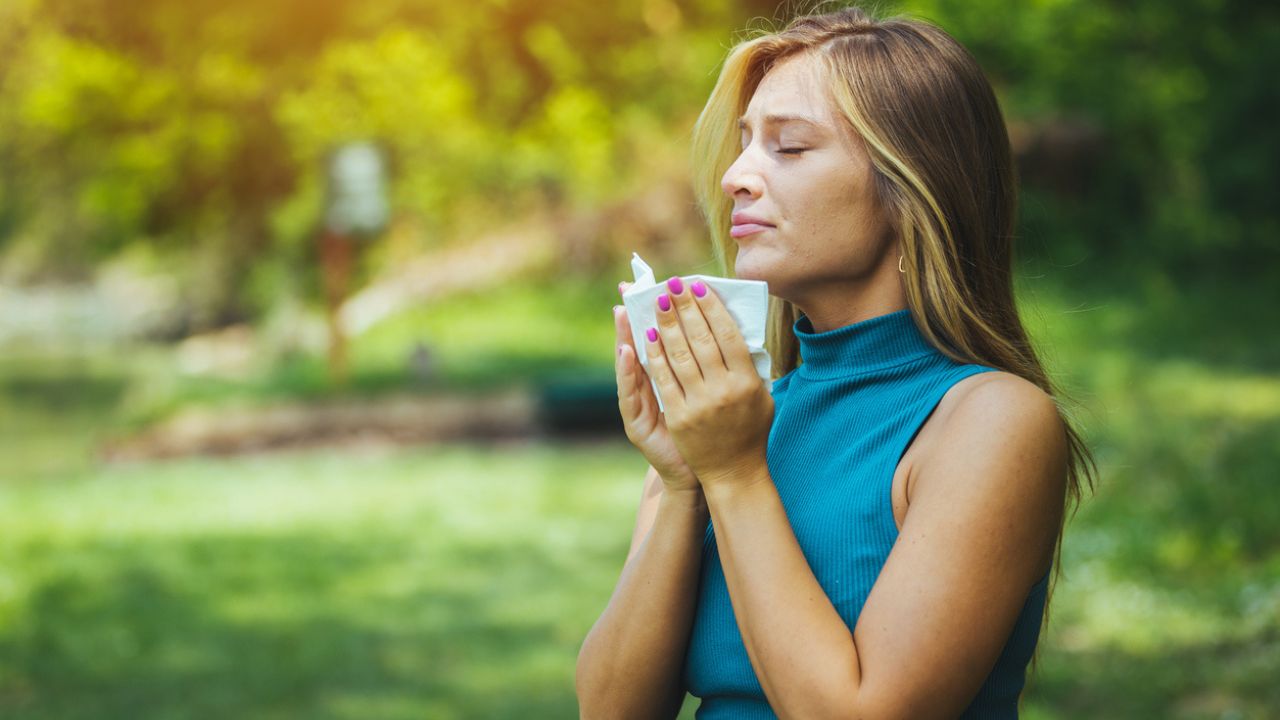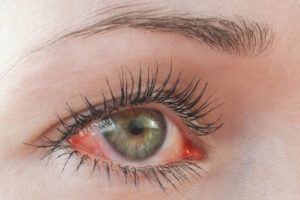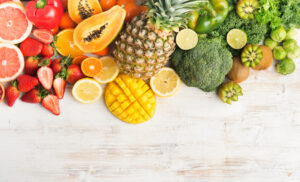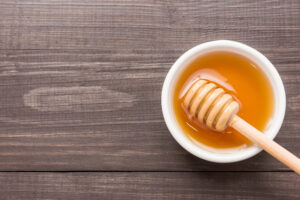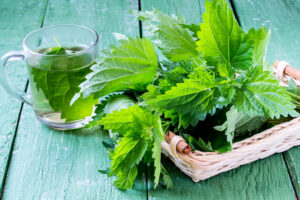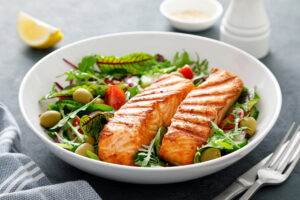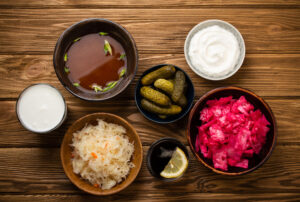If you suffer from hay fever symptoms there are lots of natural remedies aside from hay fever tablets that can help. From eating local honey to dusting with a damp cloth – we hear from the experts
By Eva Gizowska
The sun is shining, the sky is blue and nature is full bloom. Yet, instead of enjoying the warmer, longer, summer days, you’re struggling to keep hay fever symptoms under control.
If this sounds like you, you’re not alone. Hay fever, also known as seasonal allergic rhinitis, currently affects one in four (around 16 million) people in the UK according to Natasha Allergy Research Foundation.
Typical hay fever symptoms include:
- Itchy, streaming, watery eyes,
- sneezing and coughing,
- a runny or blocked nose,
- itchy throat, mouth, nose and ears.
Less common symptoms may include headaches and fatigue.
READ MORE: From dry eyes to itchy skin – 5 signs you need omega 7
Hay fever is an allergic reaction to pollen (a fine dust) produced by trees and grasses. Symptoms occur when the immune system reacts to pollen in the body to produce histamine and other chemicals.
Hay fever symptoms are worse on days when the pollen count is highest
This causes blood vessels to dilate, triggers inflammation and increases mucus production in attempt to flush out allergens. The pollen season starts in March, peaks in the summer, and lasts until mid September.
Tree pollen (eg: ash, elm, birch, willow, oak) counts are highest between late March and mid May, while grass and weed pollen (eg: dock, mugwort, nettle) counts are highest between mid May and September. Hay fever symptoms are worse on days when the pollen count is highest.
The Climate Change Effect
In the UK, 20 per cent of the population are affected by one or more allergic disorders, including hay fever.
Yet, the Natasha Allergy Foundation states that ‘the number of people living with allergies is rising by five per cent every year’.
Already, the incidence of hay fever has trebled in the last twenty years. Many experts believe that the rise in allergies may in part be attributed to climate change. Milder winters, for example, affect the flowering patterns of plants and trees, leading to longer pollen seasons.
hay fever has trebled in the last twenty years
‘Unfortunately, we’re going to see an increase in the global burden of allergy sufferance due to climate change in the next few years,’ says Dr Ross Walton, Immunologist and clinical researcher at Imperial College, London.
‘This may involve prolonged duration and potentially greater severity of symptoms as seasons are extended and the pollen burden is increased.’
READ MORE: Save the Planet: 12 climate-friendly food swaps you can make today
10 ways to combat hay fever
‘Although we have much more exposure to allergens due to climate change, for which global changes are required, there are so many lifestyle adjustments you can make to minimise and alleviate hay fever symptoms,’ says Alison Cullen, Nutritional Practitioner at A. Vogel.
‘Dietary changes, reducing stress, using natural and over the counter remedies, supporting your immune system and sleeping well can all make a huge difference.’
#1 Top up your Vitamin C
Vitamin C has natural anti-histamine, anti-inflammatory and antioxidant properties.
In a recent study (2018) at the University of Medicine, Rostock, Germany, it was shown that taking vitamin C (2000 mg two – three times a week) helped to reduce allergy related symptoms by 38 per cent.
Vitamin C is water soluble, so the best way to take it is in split doses throughout the day. You can also top up on vitamin C by making sure your diet includes plenty of fresh fruit and vegetables.
Good sources of vitamin C include broccoli, bell peppers, citrus fruits, strawberries, blueberries, tomatoes and kiwi fruit.
Try: A.Vogel Nature–C, £8.75 for 36 chewable 100mg tablets or Healthspan Vitamin C 1000mg, £14.95 for 160 tablets.
#2 Take a quercetin supplement
Quercetin is a plant pigment (flavonoid) found in certain foods such as apples, berries, cherries, grapes, onions, capers, green tea and leafy green vegetables.
‘It has anti-allergic and anti-histamine properties,’ says Alison Cullen.
‘Research suggests that quercetin may help to reduce inflammation, allergies and support healthy immunity.’
In a recent meta-analysis (published in Allergy, Asthma & Clinical Immunology, 2020) it was shown that quercetin can significantly reduce the symptoms of allergic rhinitis (hay fever).
For best effects, the recommended daily dose of quercetin is between 500 – 1000mg a day.
Try: Healthspan ImmunoVit Elderberry Plus – contains quercetin, elderberry, zinc, vitamin B12 and C, £13.95, 60 tablets.
READ MORE: Hay fever driving you mad? 6 proven ways to reduce symptoms naturally
#3 Stock up on local honey
Eating honey may help to reduce hay fever symptoms.
‘Local honey contains pollens which cause hay fever, and by taking pollen allergens by mouth, this may help to reduce allergic reactions by building an immune tolerance,’ says Dr Sarah Brewer, Healthspan Medical Director.
raw honey had a significant effect in reducing symptoms of allergic rhinitis
‘Local honey also contains natural antihistamines, and other anti-inflammatory substances.’
But, for honey to have any therapeutic benefits it has to be raw, unpasteurised and unfiltered. In one study (Annals of Saudi Medicine, 2013) it was found that eating local, raw honey had a significant effect in reducing symptoms of allergic rhinitis.
For best results, eat one to two teaspoons of honey at least a month before the hay fever season gets underway, and continue as long as you’re susceptible to seasonal pollens.
#4 Trap pollen with a natural barrier balm
Next time the pollen count is high, just rub a small amount of balm – this can even be vaseline – around the rim of both nostrils.
This simple tactic will help to trap pollen (also dust and other allergens) before you have a chance to inhale it into your system.
Make sure to regularly re-apply throughout the day, especially if you’ve blown your nose.
Try: Haymax Pure Organic Drug-Free Allergen Barrier Balm, £7.49 for 5ml.
#5 Practical tactics
Pollen counts are highest in the morning and at the end of day according to Allergy UK. Pollen counts also go up in warm, dry weather.
To minimise your exposure:
- Change your clothes and shower after you have been outside.
- Wear wrap around glasses to stop pollen getting into your eyes.
- Check the daily pollen count.
- Stay indoors as much as possible when the pollen count is high.
- Avoid exercising outdoors and gardening when pollen levels are high.
- Vacuum often and dust with a damp cloth regularly.
READ MORE: 7 hay fever remedies recommended by an actual doctor
#6 OTC Natural Remedies
Herbal remedies offer a gentler alternative to conventional OTC hay fever remedies, yet they can be just as effective without any of the side effects (eg: dry mouth, fatigue).
‘For anyone who wants to avoid using corticosteroid and antihistamines, herbal remedies can be useful to ease symptoms,’ says Dr Sarah Brewer.
‘I usually suggest A. Vogel Pollinosan Luffa Nasal Spray. This contains seven tropical herbs, including Luffa within an isotonic solution. This rinses the nose of allergens, restores moisture and soothes irritation to relieve nasal symptoms.’
For best effects, use in combination with A. Vogel Pollinosan Hayfever Tablets, £10.85 for 120 tablets.
Here are some other healing herbs to try:
Turmeric – known also as golden spice – is a potent antioxidant herb that has long been recognised for it’s healing properties in Ayurvedic medicine. Turmeric contains the active ingredient curcumin, a powerful anti-inflammatory, which can help to reduce histamine and ease symptoms. Try: Healthspan Opti-Turmeric 500mg, £16.95 for 30 capsules.
Pycnogenol is a natural plant extract from the French maritime bark. A recent study (published in Phytotherapy Research, 2010) showed that pycnogenol can help to alleviate eye and nasal symptoms of hay fever by lowering pollen-specific antibodies in the blood.
Nettle leaf is a potent natural antihistamine that can block histamine production. In a study (reported by the Herbal Science Group, 2009) it was shown that an extract (Urtica dioica) of stinging nettle can inhibit several of the inflammatory events that cause the symptoms of allergic rhinities. Try: A. Vogel Stinging Nettle Drops, £10.85 for 50ml.
READ MORE: 10 teas that can boost health
#7 Eat to beat hay fever
‘If you suffer from hay fever, what you eat can have a big impact,’ says Alison Cullen.
Alison recommends eating more:
- Oily fish – eg: salmon, mackerel, herrings. These are high in omega-3 fatty acids which have an anti-inflammatory effect.
- Garlic – a natural decongestant and anti-inflammatory that supports the immune system.
- Ginger – a natural decongestant that can help to reduce excess mucus.
- Fresh fruit and vegetables which to keep vitamin C levels topped up.
Avoid:
Dairy as too much of the milk protein, casein, can lead to increased mucus production.
Foods and drinks that are high in histamine – eg: coffee, alcohol, chocolate, cheese, processed food and meats, tomatoes, seafood and shellfish.
A food diary will help you to keep tabs on which foods make symptoms worse.
READ MORE: 4 oily fish recipes that will make you want to eat it
#8 Probiotics help too
Latest research suggests that people with imbalances in gut bacteria (dysbiosis) are more prone to develop allergies and hay fever.
‘To keep the gut healthy, for good digestion and healthy immunity, you need plenty of beneficial bacteria,’ says Alison Cullen.
‘When there is an overgrowth of unhealthy bacteria in the gut, this causes inflammation that can trigger allergies and hay fever. Treating dysbiosis with nutritional therapy and probiotics can be very helpful in alleviating symptoms.’
probiotics can decrease the severity of hay fever symptoms
A meta-analysis, that looked at 23 studies, by researchers at Vanderbilt University School of Medicine, US, found that probiotics can decrease the severity of hay fever symptoms. Try: Healthspan Super 50 Pro, £29.95 for 60 capsules.
Eat prebiotic foods – eg: Jerusalem artichoke, bananas, garlic, onion, leeks, celery, chicory root. These encourage good bacteria to thrive.
Eat probiotic foods – eg: kefir, kimchi, sauerkraut, kombucha. These introduce beneficial bacteria into your gut.
READ MORE: Fermented foods – are they worth the hype?
#9 Herbal Soothers
Soothe puffy eyes with chilled chamomile tea bags, as chamomile has a naturally soothing effect. Try: Pukka Three Chamomile Organic Tea, £3.45 for 20 bags.
Dab aloe vera gel around on skin around the mouth and nose to calm inflammation. Try: Aloe Pura Organic Aloe Vera Gel, £6.49 for 200ml.
#10 Check Symptoms
Not sure if it’s really hay fever? Then use the Healthily Symptom Checker to check symptoms.
Or you can visit their self-care platform for advice and all the information is medically validated at www.livehealthily.com
Like this article? Sign up to our newsletter to get more articles like this delivered straight to your inbox.



